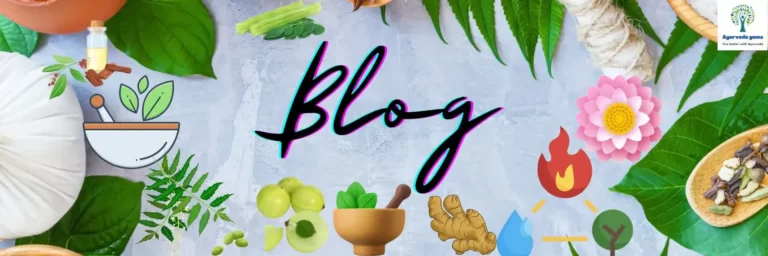How to Balance Vata, Pitta & Kapha Doshas ?

It is important when it comes to health to stay in balance. Many imbalances are due to what is known in Ayurveda as the dosha imbalances. As we know Vata, Pitta & Kapha body type consists of following elements.
Vata= Ether + Air
Pitta= Fire + Water
Kapha= Earth + Water
Each individual has a unique makeup of Ayurveda dosha. when an indivisual feels unbalanced, it’s recommended they avoid foods that are similar nature to their dosha. Moreover, a person may need to change their diet based on the seasons, such as by eating warm foods in the winter.
For each dosha, there are recommended Diets, exercises, and lifestyle practices to achieve balance. Diet and lifestyle changes should be based on an individual’s dosha or elemental composition
Vata Imbalance : How to Balance
Recommended Diet: Warm, “moist”, and soft foods (e.g., berries, bananas, peaches, cooked vegetables, oats, brown rice, eggs, dairy. Flavors that are sweet, sour, or salty work well to restore balance. Drinking ginger tea and making sure your body is getting the right amount of healthy fats and oils can help fix imbalances Vata.
Food to avoid: Frozen, dried, and cold foods like raw vegetables, cold desserts, dried fruit, nuts, seeds etc. Try to avoid flavors that are bitter or pungent.
Exercise: Vata people have “on-the-go” nature. those with vata-dominant doshas should focus on activities that involve constant movement, such as running, cycling, walking, yoga, tai chi, etc can help to get balance.
Lifestyle: Ensuring your body is warm and comfortable will help to naturally correct vata imbalance. Trying to promote meditation will balance all doshas. Massage yourself with warm oils and stones. Surround yourself with warm colors, soothing music, and sweet aromas.
Pitta Imbalance : How to Balance
Recommended Diet: Light, Cold, sweet, and energizing foods (e.g. fruits, non-starchy vegetables, oats, eggs, ghee, coconut water, coconut oil, lime, cucumber, coriander, fennel, and cardamon, etc. Drinking CCF tea (cumin, coriander, fennel) and making sure your body is getting the right amount of healthy fats and oils can also help fix imbalances Pitta dosha.
Food to avoid: Foods that are hot, spicy, sour, salty, pungent, or fermented. Nightshades (tomatoes, white potatoes, peppers, eggplant should be avoided.
Exercise: Pitta doshas people have nature to push themselves too hard and they should avoid exercising in the heat. Team sports are an excellent way to stay active while satisfying Pitta’s natural competitiveness.
Lifestyle: It will work wonders to have a cool location to unwind, particularly in the summer when the pitta dosha might become more aggravated Pitta imbalances can be naturally cured by keeping your body cool and comfortable, whether that means relaxing in the shade, taking a vacation from work, or sipping coconut water.
Kapha Imbalance : How to Balance
Recommended Diet: spicy, bitter, and filling foods e.g. whole grains, eggs, low-fat cheese, hot spices, gourd (लौकी), turmeric, fenugreek (methi), apples, pomegranate, quinoa (बथुआ), tofu, beans, and lentils. Drinking ginger tea and making sure your body is getting the right amount of healthy fats and oils can help fix imbalances, as can serving food warm
Food to avoid: Avoid foods that are cold, frozen, or moist.heavy, “fatty” foods e.g., oils, processed foods, nuts, seeds etc.
Exercise: Activities that support a healthy, balanced kapha include vigorous yoga, hiking, jogging, biking, dance, and martial arts.Performing intense workouts that increase energy and endurance.
Lifestyle: The central way to correct kapha imbalances is meditation which calms the mind, eases stress, and helps build a relationship with your inner self. Staying active physically and mentally through stimulating activities like reading and games, will support naturally correcting kapha imbalances.



